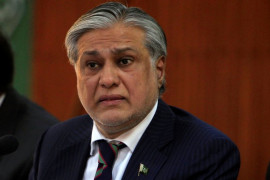
It is not unusual for aspiring undergraduate and graduate students, or early career researchers and post-doctoral fellows to write to me and inquire about opportunities at my university and other institutions. Like many of my peers who are fortunate and privileged to work in the research sector, I get plenty of such inquiries, including those from Pakistan. Lately, however, I have seen a new and a rapidly growing group that has reached out to me: established civil servants, senior researchers and those with over a decade of experience working in various sectors in the country. These colleagues have had both substantial experience and significant impact through their work including running projects, setting up clinics, crafting policies, etc. Given my own research interests, these colleagues (most of whom I know, or have mutual connections) have largely been in the health sector.
Before any reader jumps to some conclusions, let me provide some additional information that may dispel any preconceived notions.
First, these colleagues, who are more or less the same age group as I am, are not supporters of any one political party. They are not trying to leave because their party is on the wrong end of political favours. I have known several of them and know personally that they were quite critical of the regime between 2018 and 2022. That said, some of them do have pro-PTI sympathies, but as a whole, they have diverse political views.
Second, these days, when someone talks about their desire to leave the country, we often throw labels of unpatriotic, ungrateful or naïve. I find the idea of giving certificates of patriotism to anyone personally disgusting, but these colleagues are neither ungrateful nor naïve. It is not they are not aware of the challenges in finding meaningful jobs abroad, or that they have never traveled outside the country, or that they do not know how difficult it may be to start afresh. As a matter of fact, several of them returned to the country after master’s degrees from very well-known institutions of higher learning in the US and elsewhere. All of them have reached out to me for advice on applying to graduate school (specifically PhD) with the hope that an advanced degree may create opportunities for them outside the country in research, teaching, policy or development sectors.
Finally, most of these colleagues are already employed and have families. Here, I may add that a substantial number of those who I have spoken to are women.
So why are these colleagues — who are employed, settled and not in the lowest ranks of the socio-economic spectrum — interested in leaving? When I ask them, all of them give more or less the same answer: they are exhausted. Exhausted not in the sense of being tired due to overwork, but exhausted in the sense of being stuck. All of them are fatigued because they do not see their own career progressing due to corruption, lack of opportunity to grow and a system that does not reward integrity and hardwork. Female colleagues are exhausted because in addition to everything else, misogyny and harassment is deeply rooted in the system, and does not seem to be changing despite grand claims of progress. In my conversations with these colleagues, it has become clear that in the world of push and pull, it is less the pull of outside the country than the push from within. They all want what we all want — a better future for our next generation.
I recognise that my experience of talking to a number of mid-career professionals is not universal, and in a country of 250 million, this cannot be generalised. Yet, I know that my experience is not completely unique either. There is growing frustration in many groups about the country and what it means to have a meaningful, productive life. When the highest government officials, in a lousy attempt to demonstrate that they are from the masses, divert a commercial flight from its desired destination to their hometown so that they could disembark first, it is not difficult to imagine that we are creating a fertile ground for fatigue and frustration to thrive.
Published in The Express Tribune, April 16th, 2024.
Like Opinion & Editorial on Facebook, follow @ETOpEd on Twitter to receive all updates on all our daily pieces.








































COMMENTS
Comments are moderated and generally will be posted if they are on-topic and not abusive.
For more information, please see our Comments FAQ